Establishing the German concept of vocational training in Laos – German Financial Cooperation (FC) has supported this project for several years. Evaluation expert Lena Hauck travelled through the country to get an idea of how successful the measures were.
About Mrs Hauck
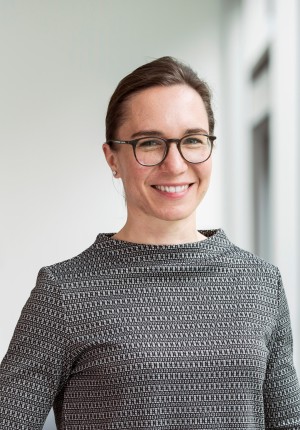
Lena Hauck is a Project Manager in the Evaluation Unit at KfW Development Bank, where she is responsible for the Education and Health sectors.
“Willkommen in Laos!” (Welcome to Laos!) 8,400 km away from her workplace in Germany, our evaluation expert is greeted in German, a genuine surprise at the Ministry of Education in the capital city of Vientiane, her first port of call. She finds out from her hosts that it is not at all uncommon for senior civil servants in Laos to speak German. In the 1980s about 2,000 Laotians were trained in the German Democratic Republic (GDR).
Studying in Germany was considered a privilege. In return for this, one thing was very clear: the knowledge was to be put to good use once home from Germany. During their studies abroad, the ministerial staff also familiarised themselves with the dual vocational training system in Germany. For many years they have been working in their home country to implement this model of complementary theoretical and practical knowledge, adapted to the Laotian setting.
Evaluation in Laos
German FC has supported vocational training schools in Laos with infrastructure and equipment since 2006. An initial evaluation in 2014 shed light on some rather disappointing results of the support. The next evaluation took place in 2018: could the initial difficulties in vocational training in the centrally planned economy of Laos be overcome? Are the vocational schools now sufficiently attended and do graduates find a suitable job? In search of the answers, our education expert embarked on a long journey across Laos.
Learn moreThis is not an easy task, as illustrated by the KfW Evaluation Report from 2014. The first vocational training projects in Laos performed rather poorly as fewer pupils visited the schools than originally expected. Some of the supplied equipment, such as tools and machines, had not been unpacked, even years after their delivery. The needs of the labour market were clearly overlooked in the design of the individual training courses. The 2014 evaluation report nourished the fear that vocational training in Laos would not become a German export success story but instead turn into more of a shelf-warmer. Fortunately though, in 2018, our evaluation expert has some new and more optimistic information in her bag.
Weeks before leaving for Laos, an online survey was conducted from Frankfurt. Laotian students, graduates and employers were interviewed anonymously online about their perceptions and experiences with vocational training. And just like the greeting in German, the results of the survey were a pleasant surprise. The vast majority of the respondents were very positive. Receiving an education at one of the still rather new schools in Laos seems to have helped many young people become (self-)employed: repairing cars, cultivating mushrooms or working in restaurants, for example. The employers seemed satisfied as well. Thus the KfW expert and the Laotian
project partners were really keen to start their tour of the vocational schools. Would the positive impressions of the online survey be confirmed, or has little changed compared to the rather disappointing situation in 2014?
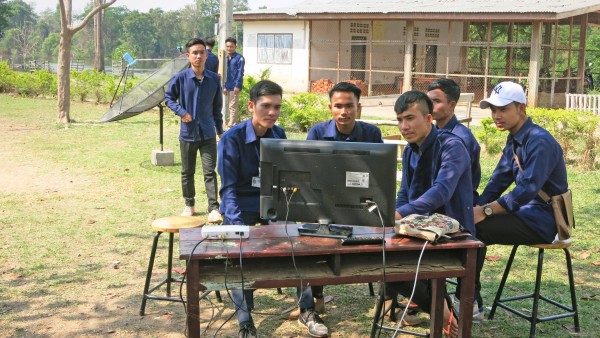
Curious
Far from the capital of Vientiane, vocational training students seek to connect to the modern world.
The mission was ready to go at Vientiane airport for the 70-minute flight to Sam Neua in the north of the country. The sky is blue, which is a good sign because here they still fly by sight; there is no air traffic control from the ground. Nevertheless, the flight is cancelled, safety first. The mission has to change its plans. It is not possible to drive by car from Vientiane to Sam Neua in one day. With the calm and serenity customary of the Lao people, the carefully prepared schedule is turned upside down: a journey of eight hours through the mountainous Laotian landscape will now take the mission to the vocational school in Phonsavan in the province of Xiengkhouang. From there they can drive on to Houaphan to visit the school in Sam Neua. The journey is long and arduous. The occasional village rushes by between forests and plantations. Yet the long time on the road is also an opportunity for our evaluation expert. There is a lot of time to get to know the project partners better and get answers to all her questions. Why is there a vocational school in every remote province? Why are the curricula always the same? Can vocational training be organised in a centrally planned economy?
On behalf of the Federal Government
KfW has been supporting the German Federal Government in implementing its development-policy goals since 1960 within the scope of Financial Cooperation (FC). We combine financing know-how with development-policy expertise. On behalf of the German Federal Government, and primarily the German Federal Ministry for Economic Cooperation and Development (BMZ), we promote and support programmes and projects that mainly involve public-sector players in developing and emerging economies.
Risk of dud bombs
The school constructed in Phonsavan using FC funds makes a good impression and is well attended. It’s cleaning day and the pupils are helping; a roof is repaired, the garden is maintained. The curriculum includes carpentry, the hotel trade and tailoring. The pupils cook a tasty meal for the mission participants. An unusual pond on the school grounds attracts the interest of the visitors. The school’s headmaster, dressed in uniform on Wednesdays and Fridays like all public officials, explains that it is a bomb crater. Over Laotian coffee in his office he reveals that 150 mines and unexploded bombs had to be cleared on the school grounds before construction could begin. This was expensive and time-consuming, and is still common in Laos. Between 1964 and 1973, American planes bombed Laos to block Vietcong supply routes. Per capita, Laos is the most bombed country in the world. It is estimated that 30 per cent of the bombs did not explode. Since then, hundreds of people have died of dud bombs exploding. “The past must be cleared before the future can begin.” With these words, the headmaster in Phonsavan bids farewell to the visitors.
The journey continues through remote areas to Sam Neua. It is remarkable that the ministry can manage this vocational school from far away Vientiane. The headmaster and a representative of the provincial government talk about their training successes. Over dinner in the restaurant, a focus group discussion is conducted. Using translators, eight graduates talk about their careers.
Read more under the image gallery.
Bright prospects
The Lao-German Technical College offers good job prospects for the students.
Measuring success
Whether a project is succesful or not is determined chiefly by asking the following questions: What has the project achieved for the people in the partner country? Has their situation improved in the long run? Three to five years after a project has been completed, the independent Evaluation Unit of KfW Development Bank conducts an independent evaluation for roughly half of the projects completed to draw lessons learned for future projects and programmes.
More information on KfW's evaluation workLaap, the Laotian national dish made with minced meat and local herbs, is on the table. Petanque, a variant of boules, is being played outside, one of the marks of the French colonial influence. The graduates in the round of discussions at the table are convinced of the value of their education at the local vocational school; they all found jobs, for example, in the local gastronomy sector. The training courses offered were suitable for them. Of course, our evaluation expert is aware there may also be other, less positive opinions.
Before the long journey back to the capital, a spiritual ceremony called Basiis held. This is intended to implore the guardian spirits of the evaluation mission to look after the travellers. Together with all the teachers in the school, the members of the mission sit in a circle. In
the middle there is a floral arrangement, decorated with eggs, chicken and plastic water bottles. All of the participants are connected with a cotton thread. The master of ceremonies, a village elder, says the blessing. Colourful bracelets bind the guardian spirits to the participants, including the KfW evaluation expert.
A shortage of skilled workers in Laos
Back in Vientiane, where all the authoritiesand donors are gathered, it is time to learn more about the background of vocational training. There is a shortage of skilled workers in Laos. Thais dominate the timber industry, the Vietnamese control the construction industry, and the Chinese are omnipresent. In order to secure the future of Laos, it is important that the country improvesits own citizens’ training.
Vientiane is also home to the flagship of Laotian-German cooperation, the renowned Lao-German Technical College. Following the German model of vocational training, this includes direct cooperation with companies. Modern training courses are on offer, such as mining and hydropower technology, and the demand for places exceeds the supply. Yet there are some negative aspects here too. Waste disposal does not live up to expectations at all. Rapid improvements are promised before the mission leaves.
Source
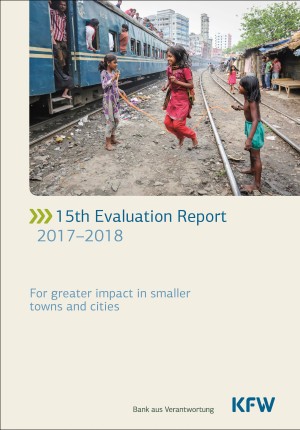
This article is taken from the 15th Evaluation Report, published in June 2019. The report documents the work of Financial Cooperation for the years 2017-2018.
See the issueThe journey continues, this time to the south. This time the flight is not cancelled. Behind the high plateau in southern Laos, where the coffee of the headmaster in Phonsavan was grown and harvested, the delegation visits some more vocational schools. Again, the impressions are positive. The centrally planned system of vocational training in Laos is not perfect in every respect, but compared to the impressions in 2014 the progress has been quite remarkable. To achieve an impact it seems that time and patience are needed, and sometimes adaptations of the approach. The Laotian generation influenced by vocational training in the GDR has little time left to promote vocational training in Laos – the generation in charge now will soon be retiring. It is then up to the graduates of the vocational schools to preserve and enhance what was achieved up to date: a reformed system and an improved image of vocational training in Laos.
Published on KfW Stories: Thursday, 6 June 2019

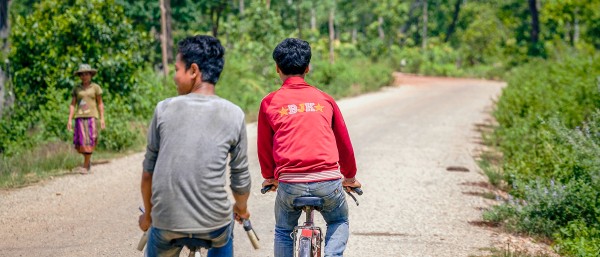
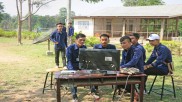
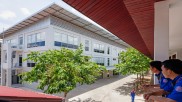
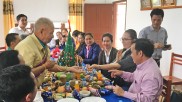

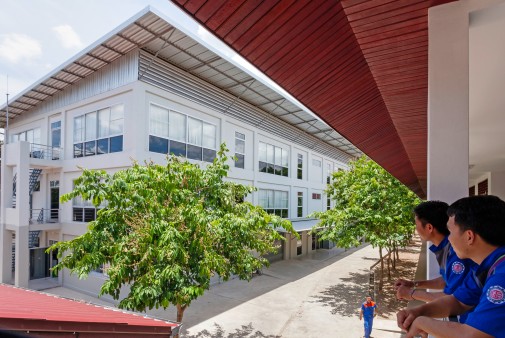
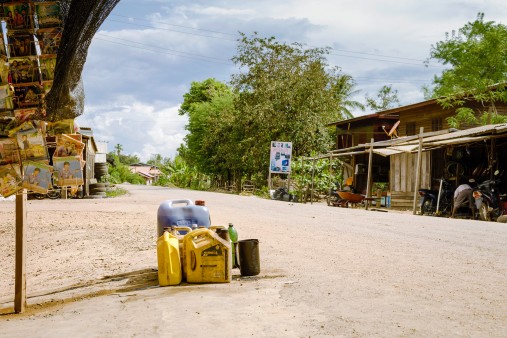
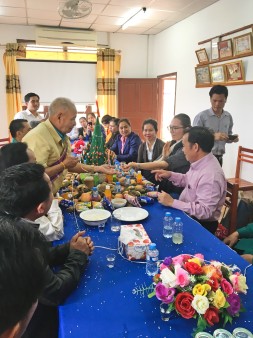
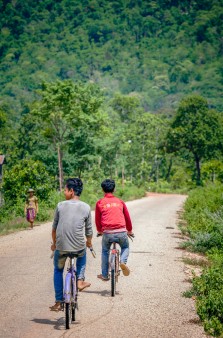
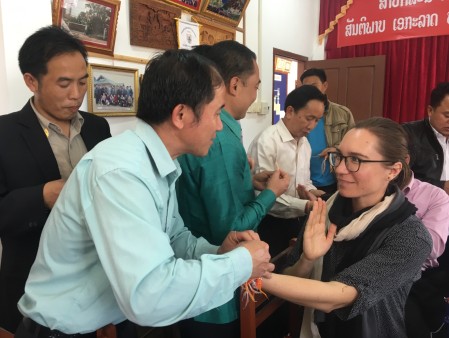
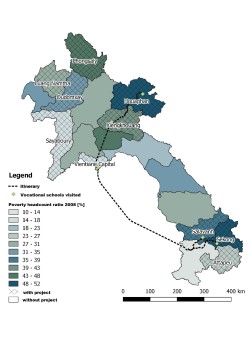






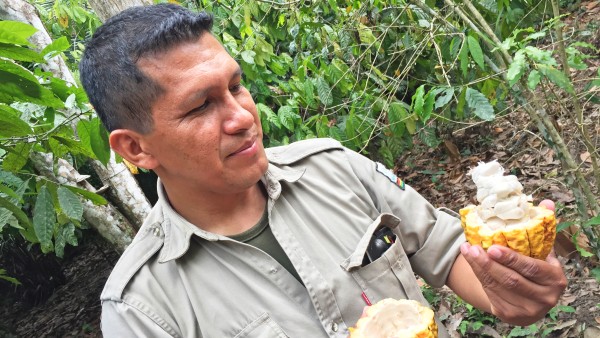
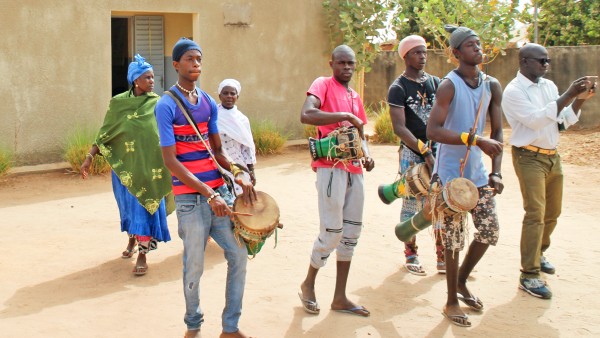
Data protection principles
If you click on one of the following icons, your data will be sent to the corresponding social network.
Privacy information